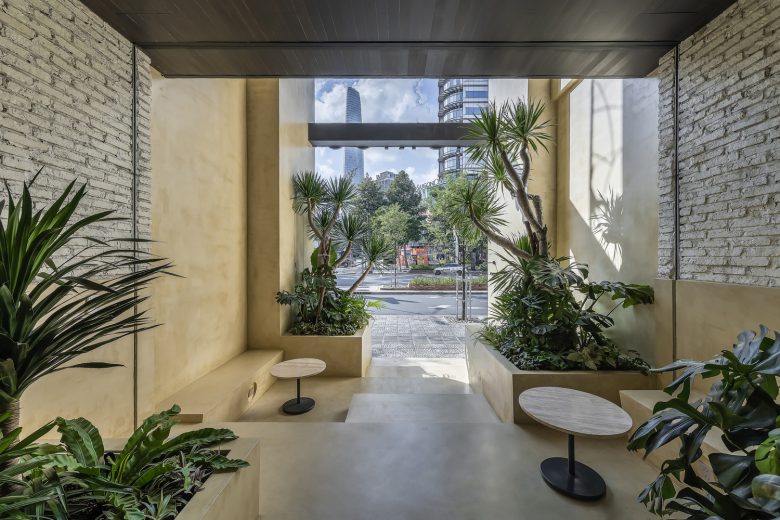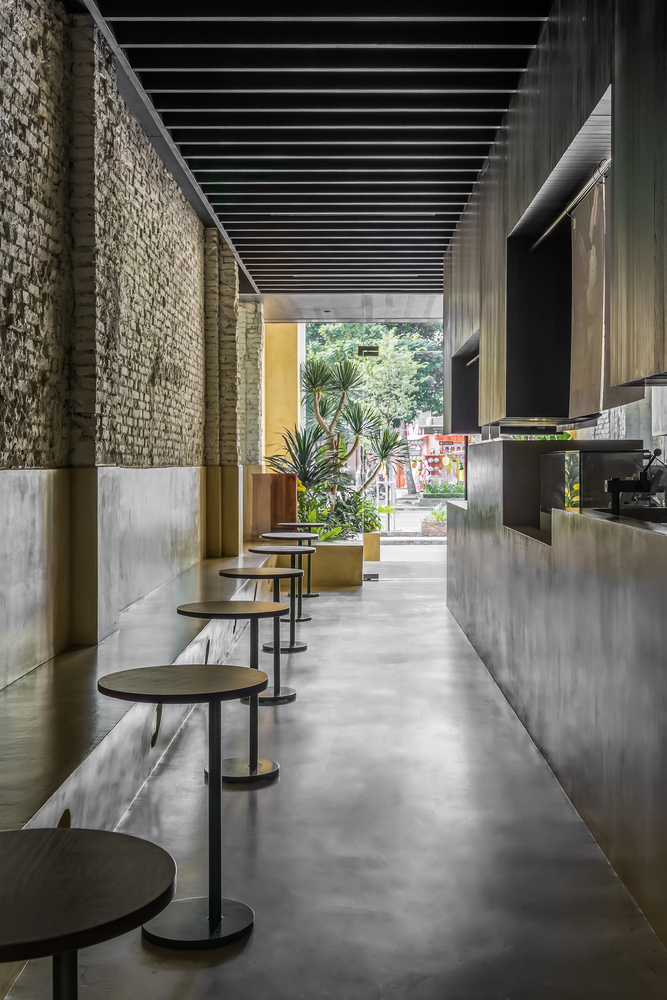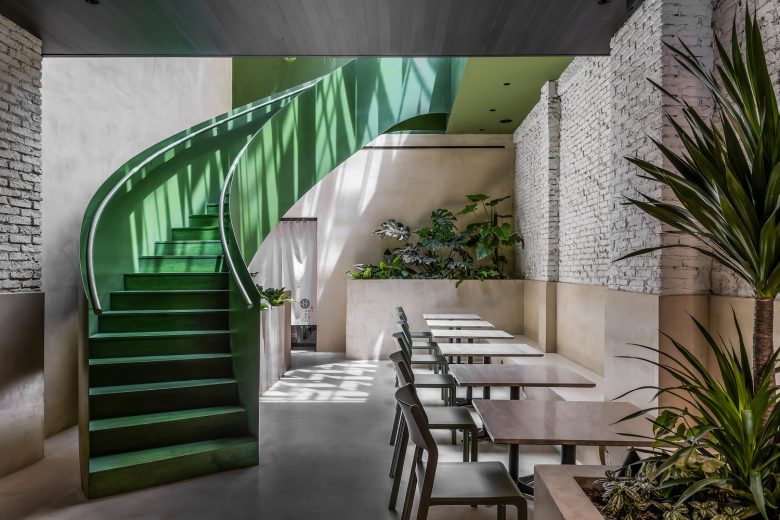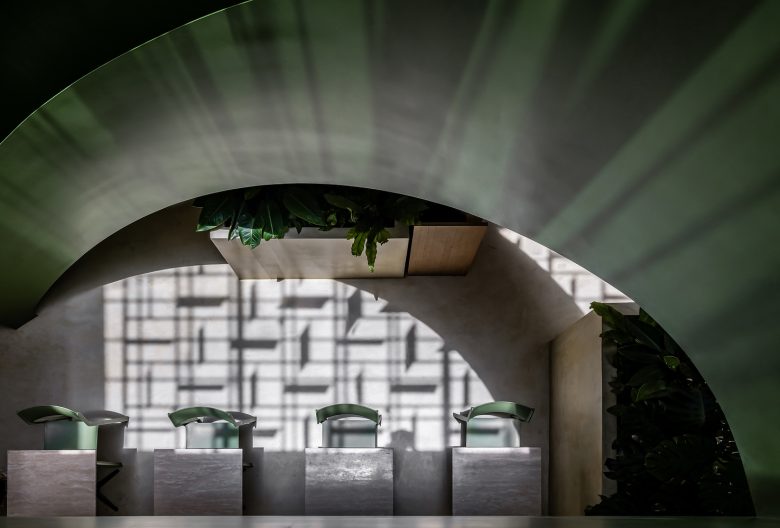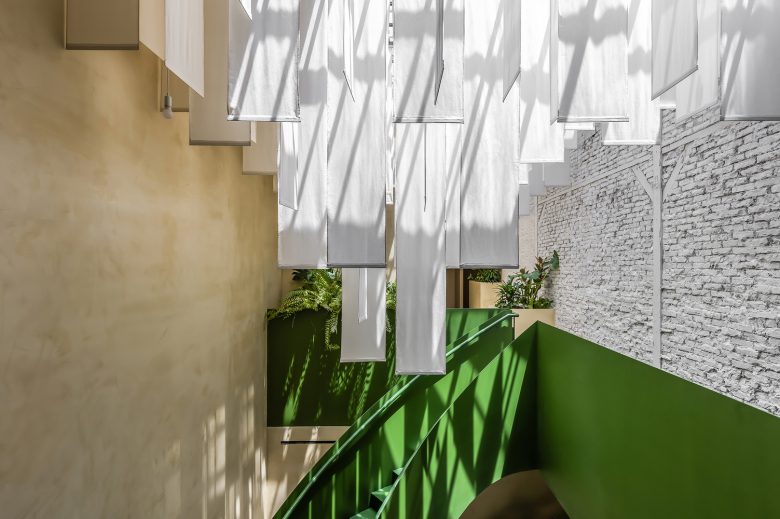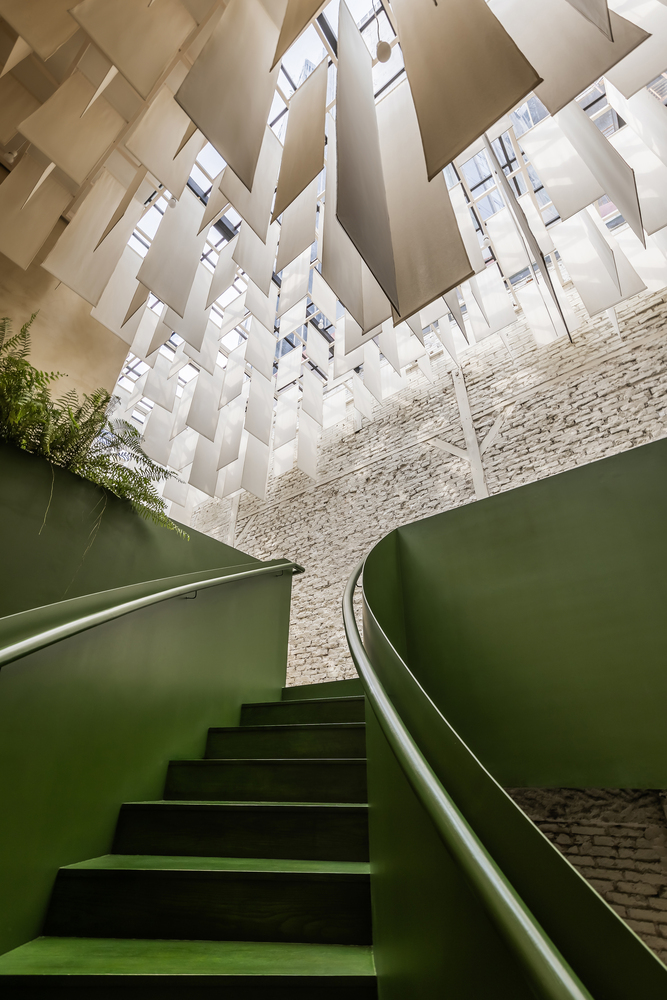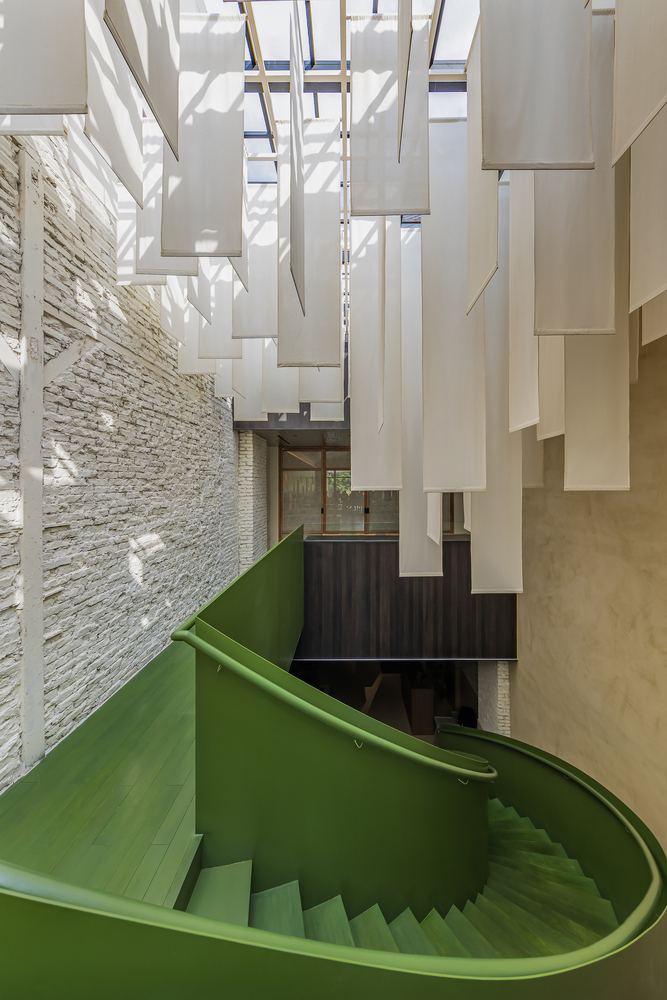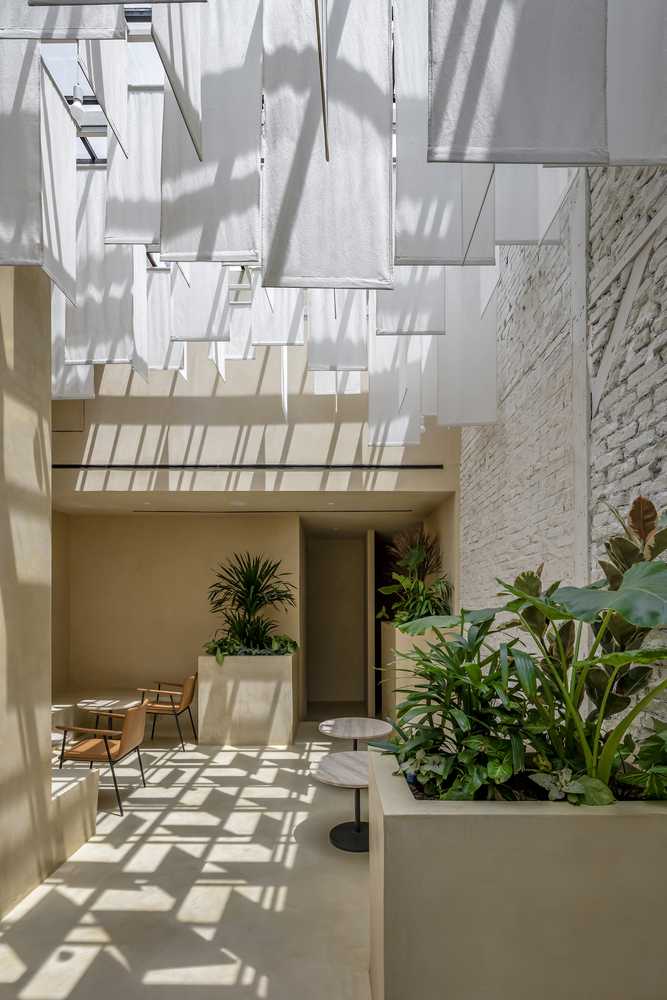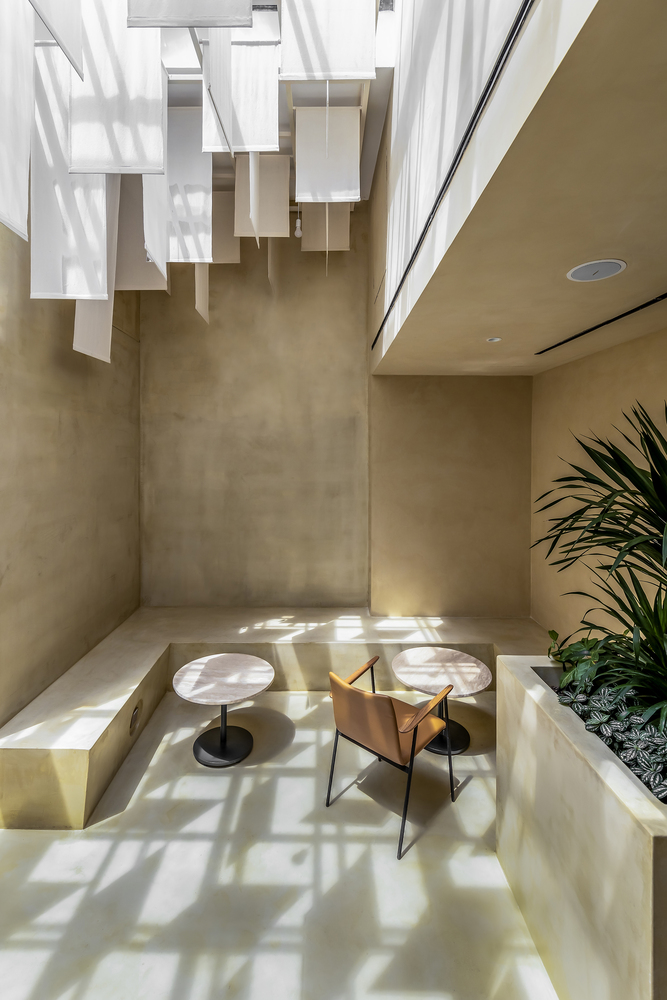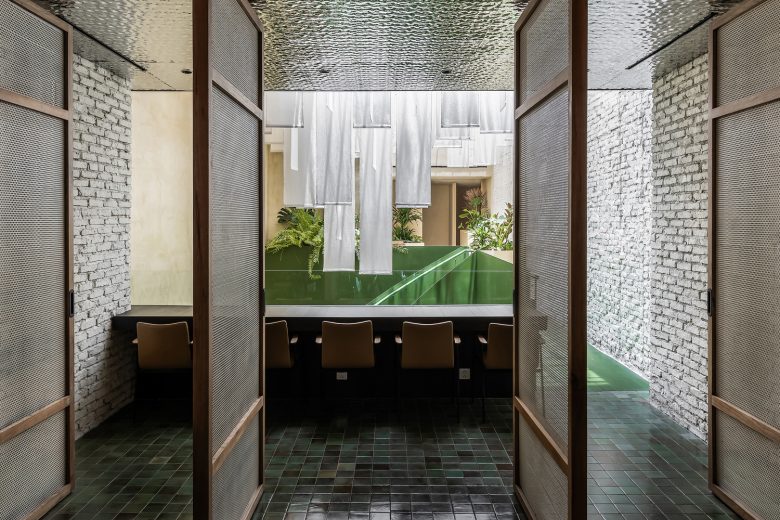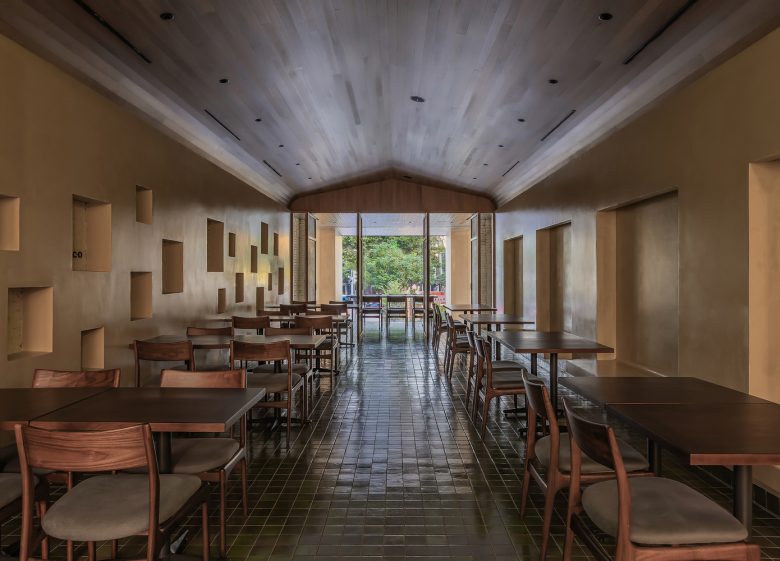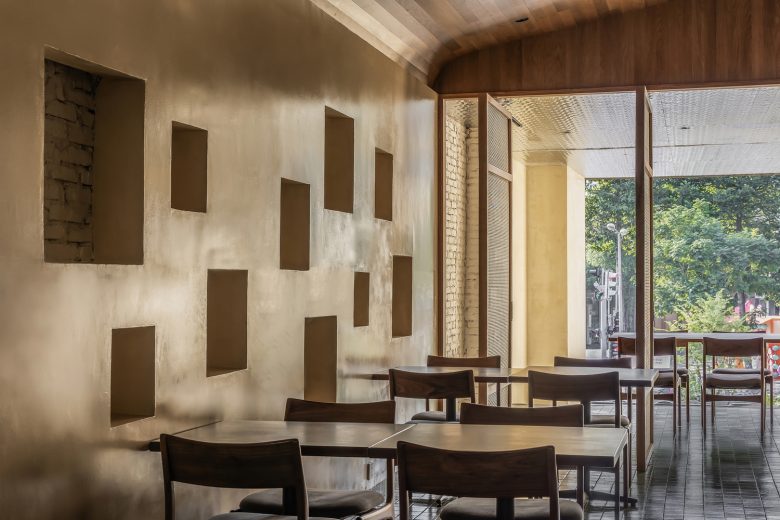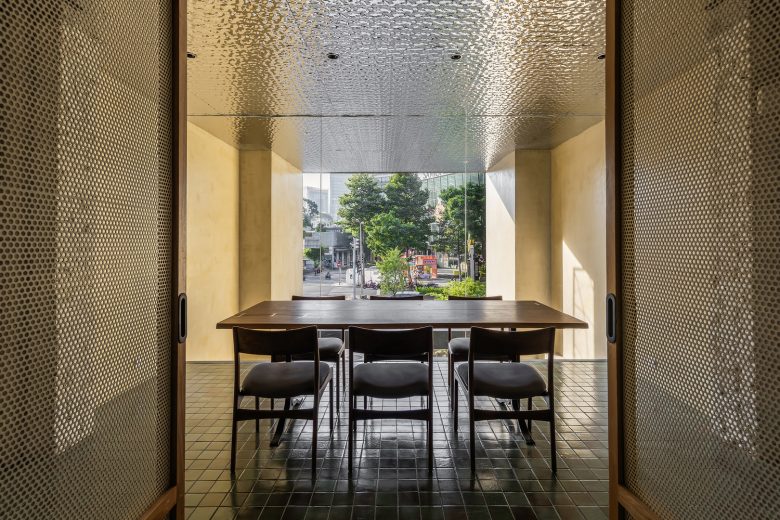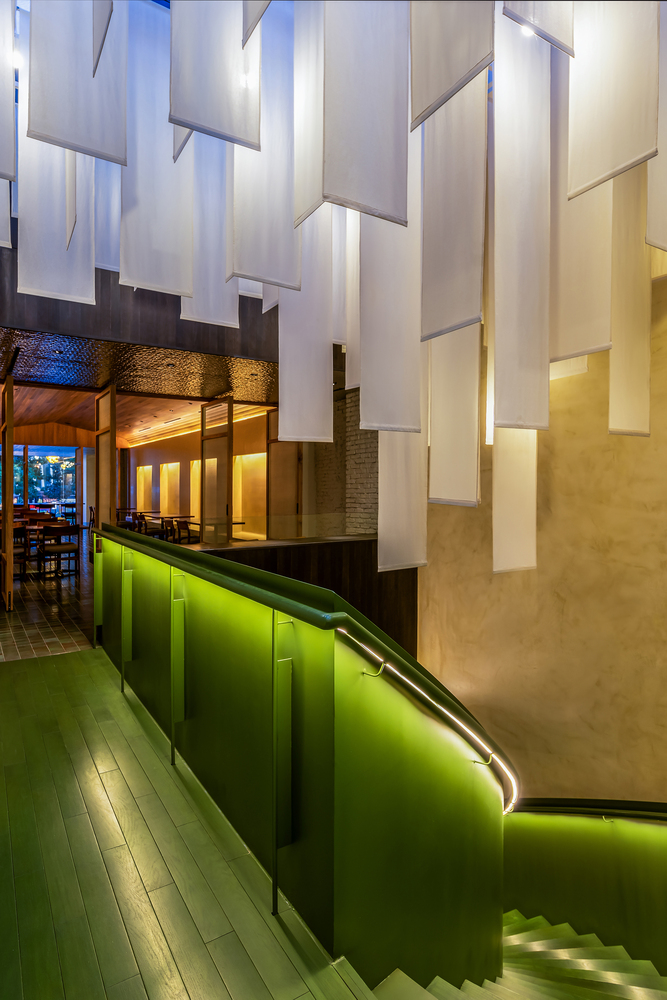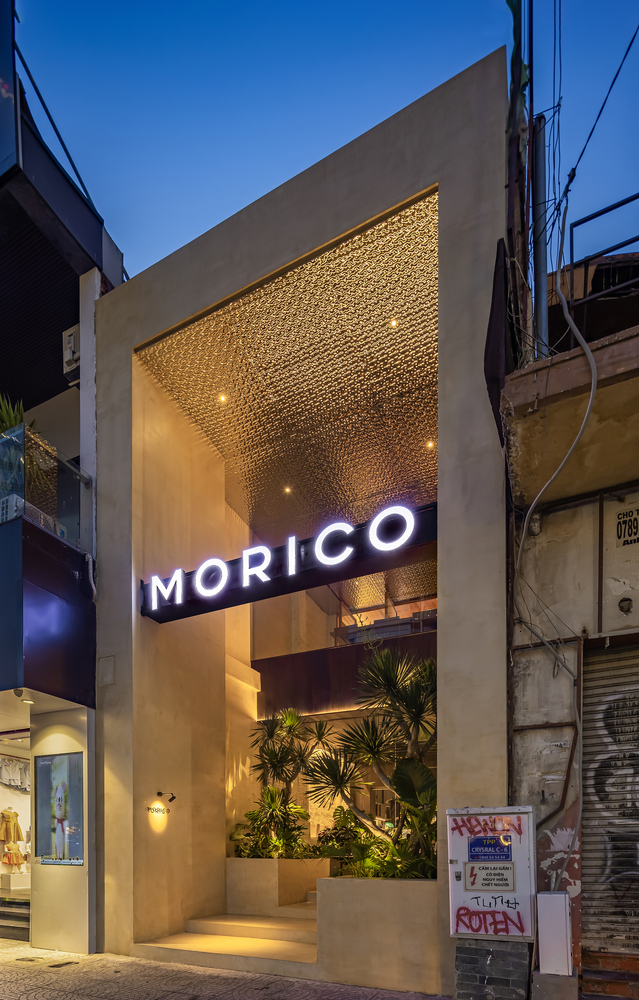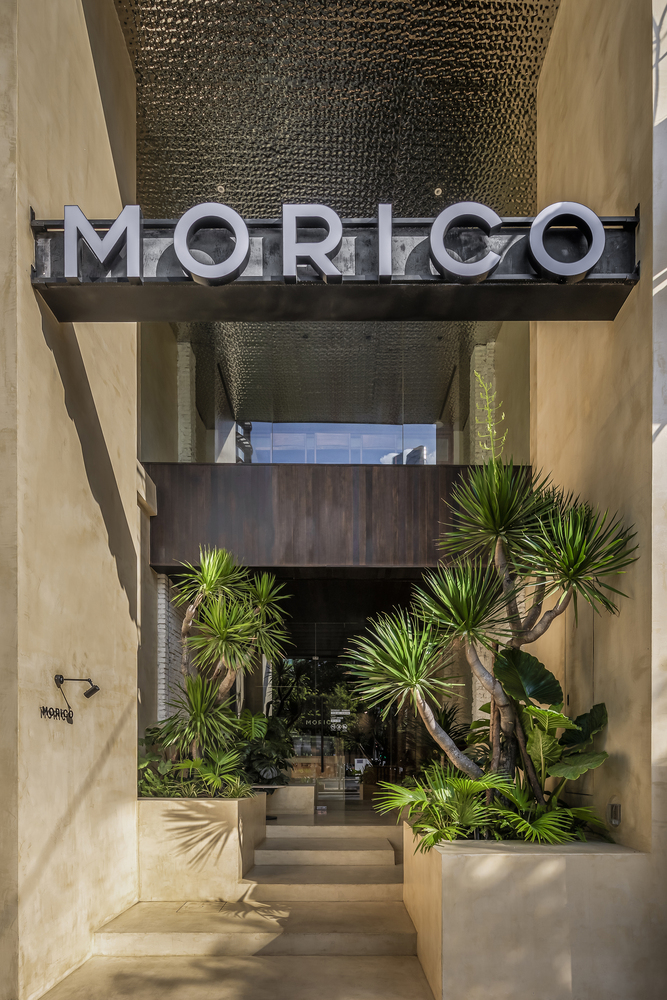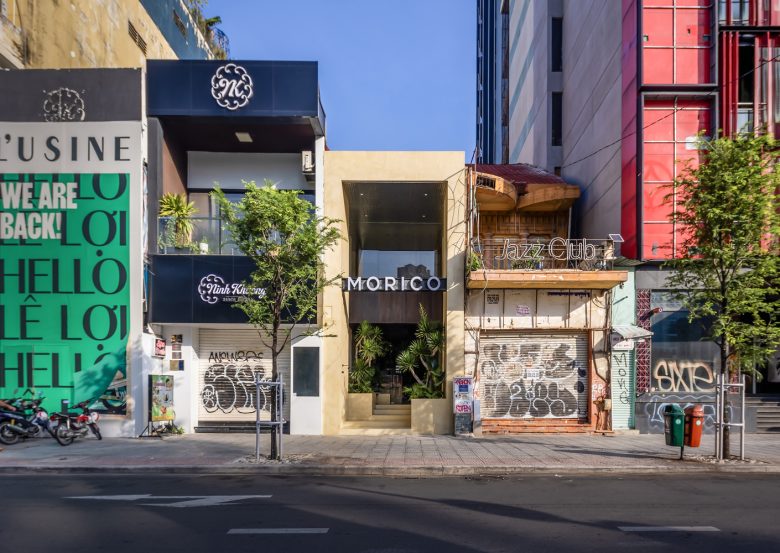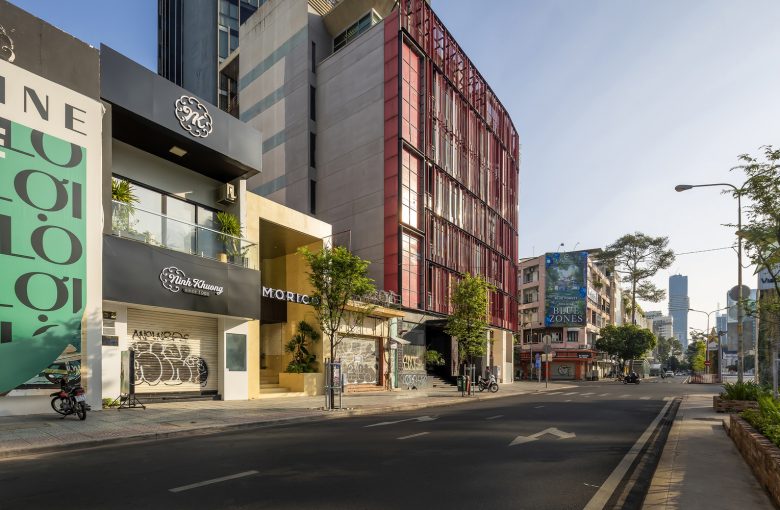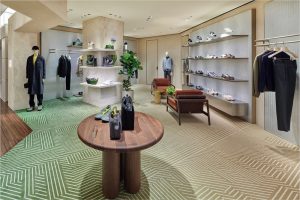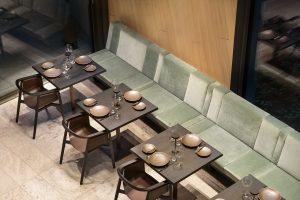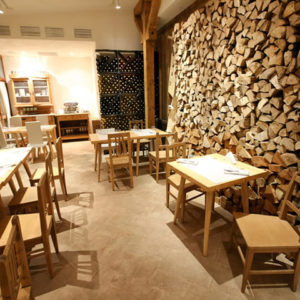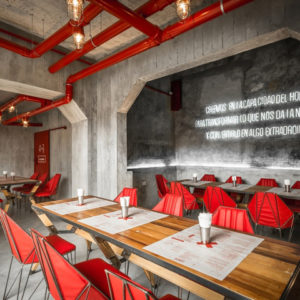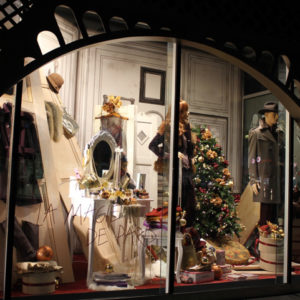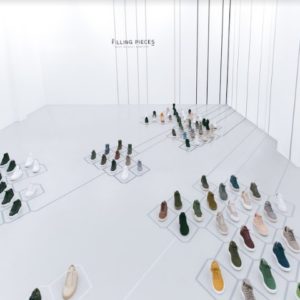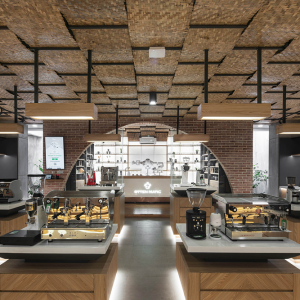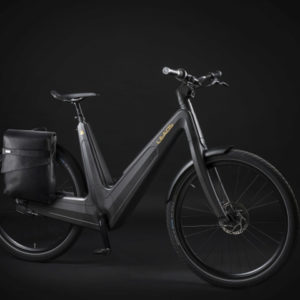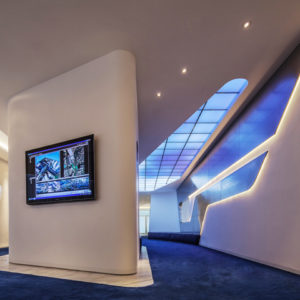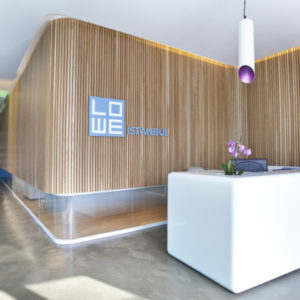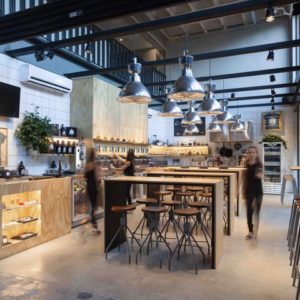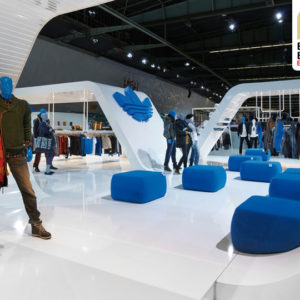
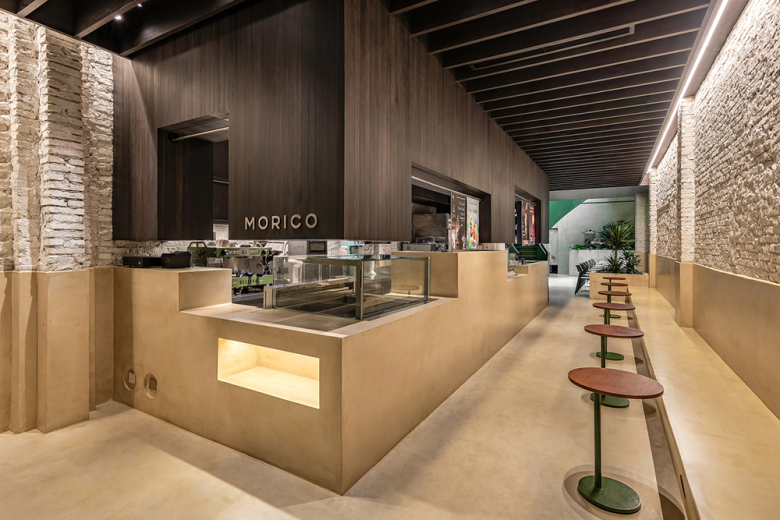
MORICO is a renovation project for a café and restaurant located in the center of Ho Chi Minh City. The existing building is an old brick row house, 5 meters wide and 37 meters deep, facing a major downtown street. Many surrounding shops have glass walls facing the road to maximize air-conditioned space, which disconnects them from the city. In tropical cities, as streets become more commercialized, the depth of the city is lost, and sidewalks tend to become mere passageways.
In this project, a “big hole” opened onto the bustling street serves as the entrance to the shop. By recessing the glass wall and creating a semi-public space along the sidewalk, the shop reclaims its role as part of the city. Staggered plants provide areas to “stay” outside, and although it connects with the street, a calm space extends toward the back. This approach is similar to how Vietnamese alleys create gathering spaces within city blocks.
Semi-Open Counter – Open counter kitchens often limit a shop’s functionality while enhancing interactions between the shop and its customers. In the semi-open counter kitchen, which features mismatched upper and lower volumes, the staff does not need to be overly concerned about maintaining perfect tidiness. They can easily reach what they need while engaging with customers.
Courtyard and Noren – The original building consisted of a main house and a detached house, with a courtyard in between. Before the renovation, this courtyard area was covered with 2 layers of floors and a glass roof and served as a continuous space. By restoring the atrium, light that filters into the deep, narrow room now reaches the first floor, adding an accent to the space. Under the glass roof, 180 noren curtains are hung, and the patterns of shadows change over time. This setup represents the store’s “contemporary Japanese” concept in architectural form.
New Main House – Our design aims to restore the composition lost before the renovation while maintaining the unity of the space. The new main house is positioned on the second floor, floating above the ground, so it does not disrupt the continuity and casual atmosphere of the first floor. Conversely, the new main house on the second floor has a serene atmosphere, making it suitable for dining customers. When the doors are closed, it can function as a large private room and is also expected to serve as an event venue.
Architects: Inrestudio
Lead Team: Kosuke Nishijima
Design Team: Khoa Van Trung, Thang Chung Hieu, Huynh Kim Hong
Photographs: Paul Phan
